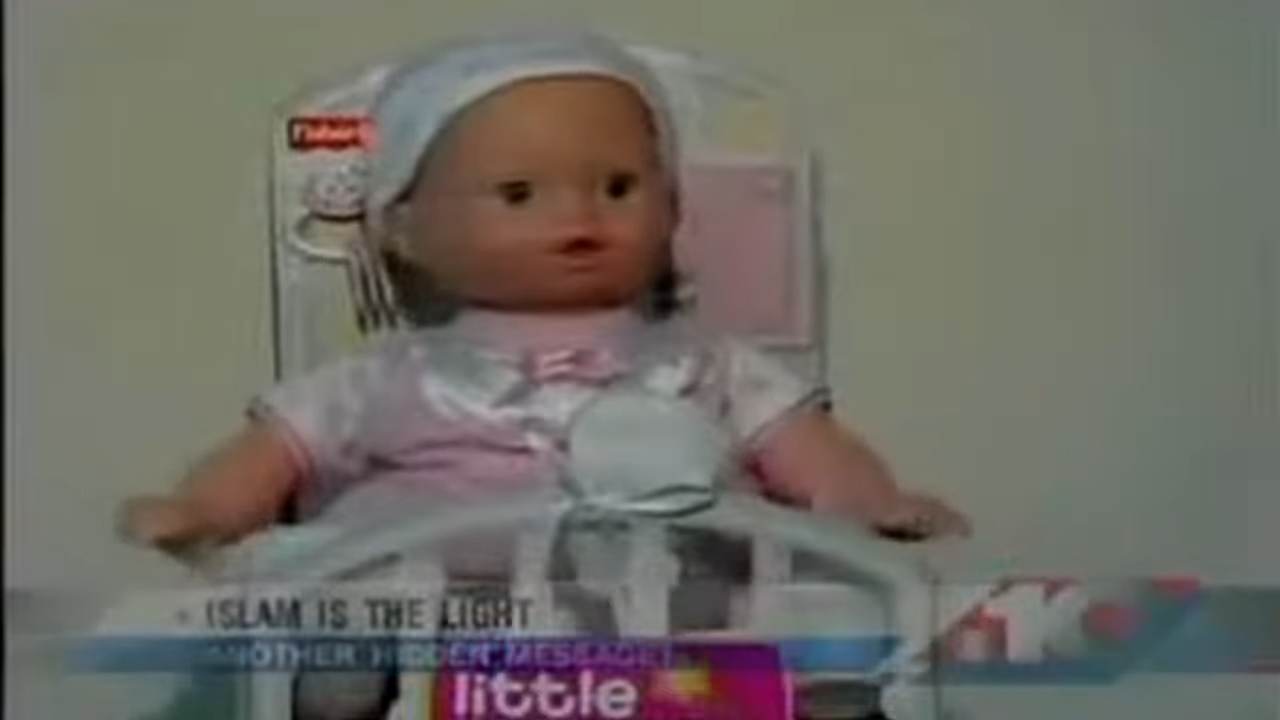InXile celebrates 20 years by remembering that time it made a baby game and got swept up in a moral panic
At least you can look back and laugh: No, not like that!

The venerable InXile Entertainment is celebrating its 20th anniversary, and has posted a new studio video with some of its key figures talking about the journey thus far. InXile was founded in 2002 by Interplay co-founder Brian Fargo, and its first game set a high bar: The Bard's Tale, a fourth wall-breaking APRG that managed the rare feat of being a genuinely funny videogame.
Quality doesn't always win through, though, and InXile had a rough ride of things at times, including spells when it developed mobile and Nintendo DS games to keep the lights on. Cancelled projects didn't help either: I visited a Codemasters preview event many years ago and saw a demo of Heist, an in-depth bank robbing strategy game that would never see the light of day. It actually looked like it could've been great, but clearly looks can be deceiving.
The studio's anniversary video goes through a number of its highs and lows, but what really blew my mind is an incident I'd completely missed at the time. One of the avenues InXile pursued when it was trying to keep things ticking over was the enormous Nintendo DS market, and its seemingly inexhaustible appetite for 'lite' style sim games.
"The world was shifting underneath our feet," said Fargo. "Okay, we just got to be plucky entrepreneurs, we've got the rights to Line Rider. Then Nintendogs came out, I'm like 'let's do cats', so we sold like three quarter-of-a-million copies. I mean, what else… dogs are done, what else should be done. Well, people love babies…"
This would ultimately become a game called Baby Pals, but what happened shortly after its release must have stunned InXile. The anniversary video shows an American cable news clip (timestamp), where the reporter says this mother was distressed after buying her 8 year-old girl the game as a reward, before 'discovering' that it contained a hidden message. The baby appears to say "Islam is the light".
"We licensed the sound library," said Fargo. "Which was the same one that Mattel used for one of their dolls so, y'know, seemed safe. And next thing you know we're in the news, that if you listen carefully the baby is saying 'Islam is the light'.
"I'm like, okay, you've got to be kidding me. Right… okay, kind of a stretch."
The biggest gaming news, reviews and hardware deals
Keep up to date with the most important stories and the best deals, as picked by the PC Gamer team.
"It wasn't even words," adds another voice, and they're clearly right. The random baby sounds do however add up to an odd approximation, one of those things where if you're looking for it (and no doubt some do) you can hear what you like.
"It was just a baby babbling," recalls InXile's Elene Campbell. "There were no hidden references and it caused so much trouble, it was so stupid. But Baby Pals was great!"
At the time the game's publisher, noting that Mattel's dolls included the same sounds, said: "The sound in question of this babble may sound like the words night, right or light, but it is only coincidence as the baby recorded was too young to pronounce these words let alone a whole grammatically correct phrase."
The controversy eventually blew over, and the perpetually offended cable news shows moved onto other targets like French mustard.
Things seem to be going much better for InXile these days, and its most recent title Wasteland 3 has seen positive responses from players and critics. It's not yet known what the studio's next project will be though, following its 2018 acquisition by Microsoft, the various talking heads here strongly indicate it will be the kind of game it's known for. And no, that doesn't mean Baby Pals.

Rich is a games journalist with 15 years' experience, beginning his career on Edge magazine before working for a wide range of outlets, including Ars Technica, Eurogamer, GamesRadar+, Gamespot, the Guardian, IGN, the New Statesman, Polygon, and Vice. He was the editor of Kotaku UK, the UK arm of Kotaku, for three years before joining PC Gamer. He is the author of a Brief History of Video Games, a full history of the medium, which the Midwest Book Review described as "[a] must-read for serious minded game historians and curious video game connoisseurs alike."

